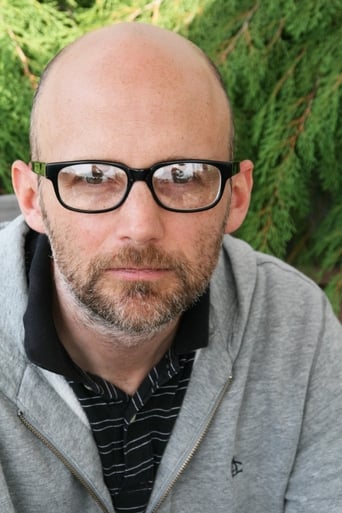Hellen
I like the storyline of this show,it attract me so much
Acensbart
Excellent but underrated film
Intcatinfo
A Masterpiece!
KnotStronger
This is a must-see and one of the best documentaries - and films - of this year.
Dave Olivier
"PressPausePlay" is worth the watch. Specifically because technology is complicating the creative endeavour.I recently read about how concert tickets are becoming increasingly expensive because artists aren't making enough off record sales. I know for sure that online streaming services, for a small fee per month, are putting me in touch with existing and new music artists, but am I a fan? This is something raised by one of the interviewees in "PressPausePlay", who says that live concerts require a music listener's commitment - they have to leave the comfort of their home, and the endless playlist on the computer, to experience an event where anything can happen; where the artist may not sound as they do on the recording."PressPausePlay" also touches on how creative technologies have become cheaper, allowing anyone the means to be creative. One interviewee shares a great analogy: were we to develop tiny self-replicating machines, unchecked - at some point, the world would be inundated with grey goo.After watching this documentary, three things stand out for me: 1. it is good that the means of producing something artistic is now in more hands, but 2. it is becoming more difficult for the consumer to not be overwhelmed by the volumes of creative material out there, and 3. one needs to guard against the audience becoming the artist.What I like about PressPausePlay is that it draws opinions from people in different creative industries, and that it talks about both technological innovation as a phenomenon and how the artist engages with new technology in his or her own way. I enjoyed Ólafur Arnalds' journey in the documentary.Overall, the production value is impressive. PressPausePlay is beautifully shot, and I enjoyed the montages that punctuate some sequences. I liked how they used sounds of performances in the cut. Most importantly, it made me think about how I practise my craft in a time where just about anyone can make their own movie.
Ake_Andersson
Dominating theme of the documentary seems to be "how we all are going to make it again while here are so many of us now?" while viewers are not given a single tangible example of how digitalization has actually changed the actual artistic work-flow and how it would purportedly simplify a creative process given that the objective is still to make something new, fresh and meaningful. Does it really matter then that if the process takes couple of minutes or 6 months then? After 30 minutes watching I couldn't help but ask myself why all those people tell us things that everyone must have heard and read million times already and why the makers of the documentary suppose that I or someone else would automatically accept their authority and expertise in things that they are talking about.Even worse, commentators fail to support their opinions with hard facts or wider academic perspective that would help to explain why so many arguably would like to make art themselves now more than previously. While hipsters don't try to disguise their infatuation for their nice new toys, no one explains convincingly why so many now can afford to buy those things, let alone make their art full-time.While the documentary tells us that "craft is gone" and anyone could make music now, the only thing that epitomizes the assertion is annoying repetitive schmaltz playing in the background.
Julia Thompson
Press Pause Play is an enlightened documentary film featuring the musician Moby, as well as many other current artists, who comment on the technological advances that have enabled artists to create more freely; as well as get their art out in the public zeitgeist more quickly and easily. The film discusses whether or not the changing landscape for artists and the new technologies available to both create and promote their art will lead to artists retaining more creative power and access; or whether it will create a brave new zeitgeist of mainly "noise". However, the general theme of the film is optimistic about a renaissance of new fresh art and access for so many of the talented young artists who have a message today. The world is becoming an artistic democracy, where the public is enabled to vote with their computer or smart phone. So, it is apparent that even though many more people with varying degrees of talent are given a voice; the cream will still rise to the top as it always has.
JvH48
I saw this film as part of the Ghent filmfestival 2011. It is a study on modern techniques to create and distribute a work of art, music, film or literature. "New" means that you don't need an "official" studio, radio channel or other monopolistic intermediary, inevitable in the past to deliver your creative products to the general public. You had to know people who knew other people to get your production across. Chances were small that you got past all those stumbling blocks. And even after that were you hopelessly depended on marketing channels offered by your distributor. They could convince DJ's to "plug" your record, they could arrange interviews by magazines, they could pave ways to get you into the top-xx charts, and many other means to let you become publicly recognized.The scope of this study goes far beyond the process of uploading a home movie to YouTube. But the easiness of the latter immediately shows the pitfalls of this media revolution: mediocrity lurks ahead due to lack of filtering and quality control. The average consumer, on the lookout for something interesting, will be quickly overwhelmed by the sheer vastness of everything produced and published via Internet. Hence you all by yourself, on the director and producer side, has to become your own marketeer, as is best illustrated by numerous recipes "How to become famous on YouTube".This film is a documentary, which I normally hate due to the usually obtrusive voice-over and his inevitable opinion forced upon us. That is not the case here. A broad range of people from the "field" offer their opinion, just to highlight many different aspects of the issues at hand. As a bonus we get an impressive sound track, assembled from all music categories. The music underlines the talking heads some of the time. At other times there is no music at all, just the talking. Not obtrusive, just very supportive.Some statements were very catchy, like the term "global masturbation", emphasizing that average quality tends to go down. This negative tendency cannot be helped. The volume of "amateur" productions is orders of magnitude above what "professionals" can ever deliver via their more bureaucratic channels. Which does not say that amateurs cannot make a high quality product, however.Other observations referred to the phenomena that technology always comes first, and that its usage follows later in forms not always foreseen. Once everyone had a small hand-held camera in a mobile phone, routinely carried along throughout the day, this fact of life turned us all into a would be camera man and director in the same person. And as far as editing is concerned, a similar mechanism is in effect: Affordable hardware and software gives us the ability to edit films and music at will, and does not require expensive equipment anymore. The documentary showed several examples of what becomes possible when everyone can obtain this kind of technology and use it in their own home.All in all, I was pleasantly surprised with this documentary, primarily due to the fact that the author does not take you by the hand, and certainly does not impose his views upon you. It is rather a showcase of views from several well informed people. You are allowed to draw your own conclusions, which can scatter in any direction, all depending on what you deem important and relevant.





